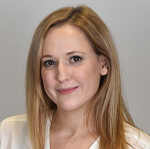Patent Laws Are Getting CloudyPatent Laws Are Getting Cloudy
In his latest No Jitter podcast, Guy Clinch talks with New Morning IP founder Fred Logue on how the cloud is changing the laws and application of intellectual property.
May 8, 2015

In his latest No Jitter podcast, Guy Clinch talks with New Morning IP founder Fred Logue on how the cloud is changing the laws and application of intellectual property.
In today's podcast, part of an ongoing series focusing on intellectual property and the cloud, Guy talks with Fred Logue, founder of New Morning IP, an Irish law firm specializing in intellectual property law for technology industries.
"The cloud has changed the rules of the game for technology companies, by making it much easier to implement software technology solutions," Fred told Guy. He pointed to telecommunications as an example, noting the transition from expensive, proprietary telecom equipment to less costly telecom software delivered as a service from the cloud.
Regarding the cloud and intellectual property, "the barrier to entry into a new business has been reduced," Fred said. "In some ways this is good, because it means that more people can enter into a market and they can innovate. But in other aspects it's a bad thing, because a market with a low barrier to entry ... is open to wider competition than is the case where there is a high barrier to entry."
While the cloud reduces the barrier to entry for innovation, moving from a hardware to a software model makes getting a technology patent more difficult, he added. He attributed this to biases in U.S. and European patent law.
"Technology companies, where once they could have relied on the hardware aspects of their new products for their intellectual property protection, are now having to navigate a very difficult [intellectual property] landscape in terms of patents when their technology is primarily software based," Fred said. "Traditionally the U.S. was much more open to software patenting, but ... with recent case law, the door is being closed against software-implemented patents."
It's odd, Guy added, that while the world seems to be headed to a code-based software world, the law seems to be heading in the opposite direction. I couldn't agree more with this observation, and it certainly highlights an inefficiency of U.S. law.
As I listened in on this podcast, I couldn't help but to think of a segment from the HBO series Last Week Tonight with John Oliver I watched recently. In the piece, Oliver takes a humorous angle on patent trolls who have emerged to take advantage of the weakness of software patents. In his typical witty style, John explained how a patent office is supposed to certify inventions that are "new, useful and non-obvious," but that during periods of technological change it gets overwhelmed and certifies patents that it shouldn't. This happened in the 1800s with railroads and is happening again now with software, he said.
While hardware patents are fairly specific, software patents can be so vague and broad. Years later, patent holders may try claiming their patents encompass new innovations, even though they could never have dreamed up such inventions at the time of the original patent filings. Exacerbating this problem is the high cost of defending a patent suit; 90% of plaintiffs settle patent-infringement cases out of court rather than investing millions in a defense.
Big technology companies like Samsung have caught on. As John related, Samsung has been sued multiple times in Marshall, Texas, for patent-related issues. So Samsung went as far as to build a branded ice hockey rink directly outside of the courthouse as a way of painting itself in a good light through community projects, John demonstrated with news video clips.
"Samsung was so afraid of patent lawsuits, they felt forced to build an outdoor ice hockey rink in Texas," John quipped. "Do you know how hard that is to maintain? It's like building a bowling alley in space. This situation is insane!"
All kidding aside, the patent system is riddled with weaknesses, so tune in for Guy's full interview with Fred for more insight into how the cloud is changing intellectual property landscape and what it means for the industry. And tune in for John's take if you get the chance!
Previous episodes in this No Jitter podcast series:
Follow Guy Clinch on Twitter, LinkedIn and Google+!![]() @gclinch
@gclinch![]() Guy Clinch on LinkedIn
Guy Clinch on LinkedIn Guy Clinch on Google+
Guy Clinch on Google+
Follow Michelle Burbick and No Jitter on Twitter!![]() @nojitter
@nojitter![]() @MBurbick
@MBurbick





